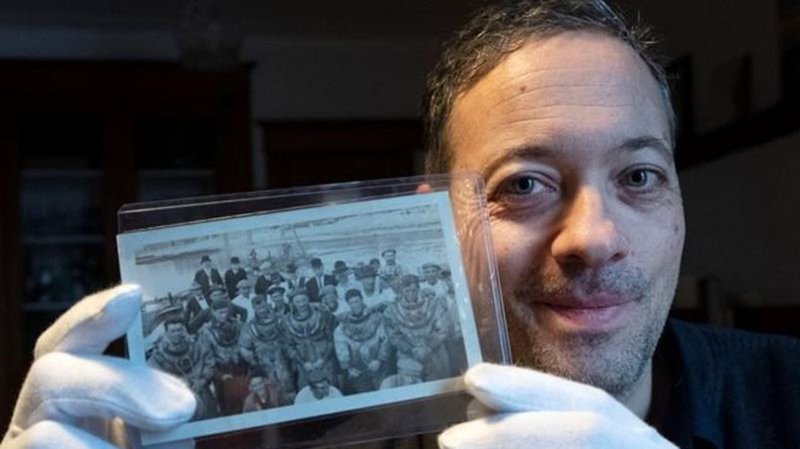
Quebec historian obtains photos of salvage operation for Empress of Ireland shipwreck
MONTREAL — The two photos that popped up for sale on eBay appeared at first glance to be nothing more than a piece of Quebec maritime nostalgia: men on a wharf in the early 20th century, with a caption reading simply “lighthouse, Gaspé 1910.”
But historian David Saint-Pierre, who was sent the link by a friend, immediately knew they were something more.
The lighthouse wasn’t in Gaspé, but was rather the Pointe-au-Père, or Father Point, lighthouse near Rimouski, Que. And the men on the wharf were British soldiers, brought to aid in the salvage operation after Canada’s deadliest maritime disaster: the sinking of the RMS Empress of Ireland in 1914.
“As soon as I saw the two photos, I knew that that scene was related to salvage on the Empress of Ireland,” said Saint-Pierre, a maritime historian who has written a book about the shipwreck.

